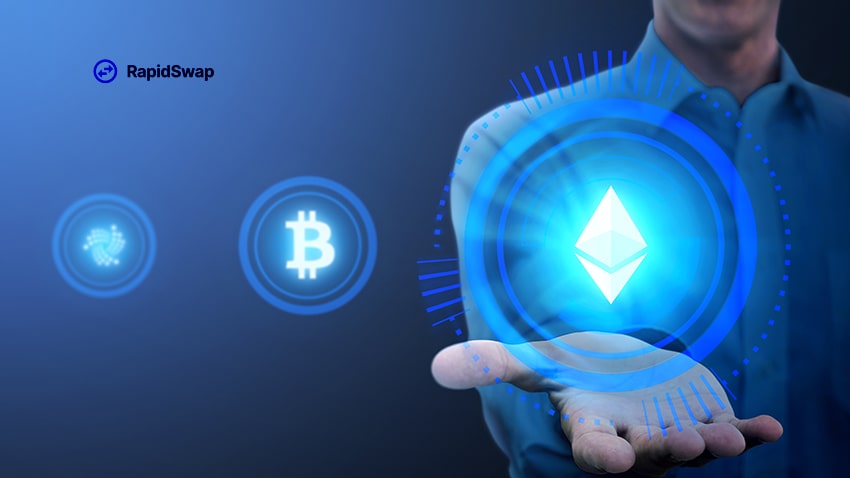In the world of cryptocurrency, Ethereum plays a crucial role, particularly when it comes to sending ERC-20 tokens. For anyone using the Ethereum blockchain, it’s essential to understand why having ETH (Ethereum) in your wallet is necessary for transferring these tokens. The underlying mechanics of this requirement involve transaction fees, GAS, and the nature of ERC-20 tokens themselves. This article provides a detailed explanation of these concepts and why Ethereum is indispensable for conducting transactions on its blockchain.
The Role of Ethereum in Transaction Fees
The Ethereum blockchain operates on a system where every transaction incurs a fee, paid in ETH. This fee compensates miners for the computational power they provide to process and confirm transactions on the network. Without paying this fee in ETH, transactions cannot be executed.
At the core of this system is the concept of GAS, a unit that measures the amount of computational effort required to perform operations on the Ethereum network. Every transaction on the Ethereum blockchain, whether it’s sending ETH or an ERC-20 token, consumes a specific amount of GAS. The more complex the transaction, the more GAS is required.
GAS: The Fuel for Ethereum Transactions
GAS can be thought of as the fuel that powers transactions on the Ethereum network. The analogy of GAS as fuel and the transaction as a car is quite fitting. Just as a car needs fuel to move, a transaction on Ethereum needs GAS to be processed.
For example, if you’re making a simple transaction, such as sending ETH to another wallet, it might be comparable to a short trip to a nearby store, requiring only a small amount of fuel (GAS). However, if you’re sending an ERC-20 token or interacting with a smart contract, the transaction might be more complex, similar to a longer trip that requires more fuel. The amount of ETH you need for GAS will vary depending on the complexity of the transaction.
Why Tokens Can’t Pay for GAS
A common question among users is whether ERC-20 tokens themselves can be used to pay for GAS. The answer is no. ERC-20 tokens are built on the Ethereum blockchain, meaning they rely on ETH for their transactions. These tokens represent digital assets or utilities, but they do not possess the ability to autonomously cover the transaction costs (GAS) involved in moving them. Therefore, in order to send an ERC-20 token, you must have a sufficient amount of ETH in your wallet to cover the associated GAS fees.
This requirement underscores the fact that ETH is the native currency of the Ethereum blockchain, and its presence in your wallet is essential for facilitating any transaction, including the transfer of ERC-20 tokens.
Calculating the Required ETH for Transactions
Determining the exact amount of ETH needed to send an ERC-20 token can be challenging due to the fluctuating nature of GAS prices. The amount of GAS required for a transaction can vary based on network congestion, which influences the overall transaction fee. During periods of high activity on the Ethereum network, GAS prices can spike, making transactions more expensive.
The complexity of the token being sent also plays a role. Some tokens may require more GAS due to their specific contract requirements. Because of these variables, it’s advisable to maintain a slightly higher balance of ETH in your wallet than the average GAS fee at any given time. This buffer ensures that you have enough ETH to cover transaction costs, even if GAS prices suddenly increase.
For an estimate of the current GAS prices and transaction fees, you can use blockchain analytics services like Blockchair. These platforms provide real-time data on network conditions, helping you determine an appropriate amount of ETH to hold in your wallet.
Why ETH is Essential for ERC-20 Transactions
In summary, Ethereum is indispensable for sending ERC-20 tokens because it covers the transaction fees, measured in GAS, required to process these transactions. Without ETH, transactions on the Ethereum blockchain cannot occur, whether they involve sending ETH or any ERC-20 token. The requirement for ETH in every transaction highlights its role as the fundamental currency of the Ethereum ecosystem, ensuring the network functions smoothly and efficiently.
Understanding the relationship between Ethereum, GAS, and ERC-20 tokens is crucial for anyone involved in cryptocurrency. By keeping a sufficient balance of ETH in your wallet and staying informed about GAS prices, you can ensure that your transactions proceed without issues, regardless of network conditions.

